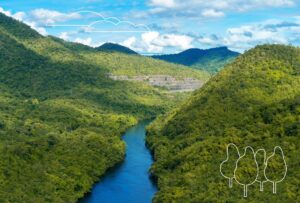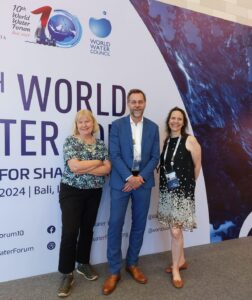Open Call for submissions to International Journal of Water Governance Special Issue
SIWI calls for abstracts to a Special Issue of the International Journal of Water Governance that will zoom in on the linkages between transboundary waters and energy. Proposals (250 words) should be submitted to Anders Jägerskog (anders.jagerskog@siwi.org) by April 26, 2013.
Transboundary Water Management (TWM) is a complex matter. Often the perspective in analysing the transboundary water interactions that occur in a basin is on the drivers inside of the basin, such as development hydropower and irrigation infrastructure. While those are important as factors to consider when analysing and seeking to understand TWM interaction, they are far from the only (or even the most important) factors to consider. One should also include factors external to the basin of which the race for energy is a key factor. This special issue aims to zoom in on the linkages between TWM and energy both from a basin perspective as well as beyond the basin to the wider regional and global scales. How transboundary water management relates to energy development is not well understood at present. A broader perspective on TWM that include issues such as energy linkages and potential, power generation and interconnections, electricity generation, regional integration and regional power pools are all areas that will be covered. The special edition seeks to explore in greater depth than previously done these linkages which are expected to, apart from generating new and important research results also contribute in identifying new clusters of related issues for further research.
A provisional list of topics includes:
- Water transfer schemes – inter as well as intra basin, donor and recipient,
- Electricity generation and related infrastructure
- Electricity transmission and provision
- Regional power pools and regional integration
- Conflicts of use – trade-offs between water for energy (electricity generation and biofuels) and water for food
- Urbanisation and energy
- Regional economic communities – transboundary water cooperation and regional power pools
- International actors – donors, IFIs, NGOs, private companies including construction companies etc
- Regional and national conflicts (including non-water ones)
- Regional and international trade in goods and services
- Off-shoring of production and associated water demands and pollution
- Land acquisitions and water storage
- Economics of cooperation – external drivers








